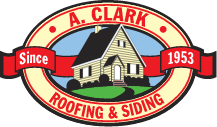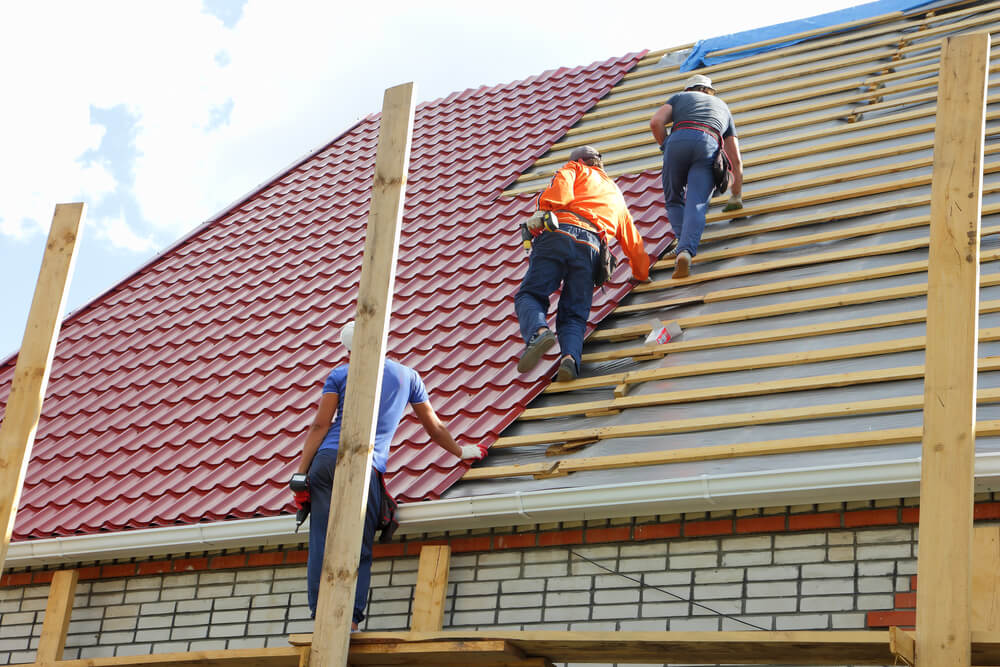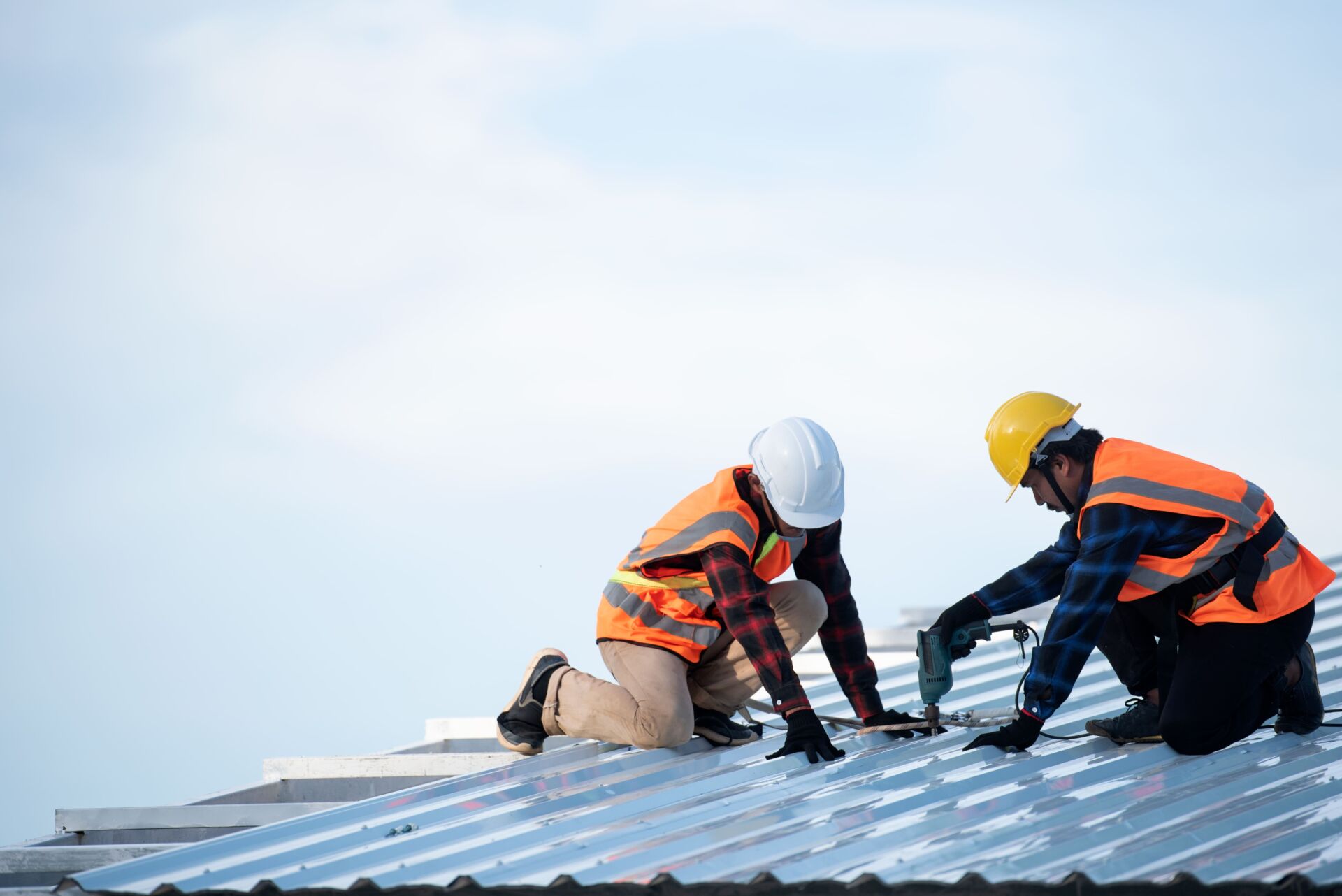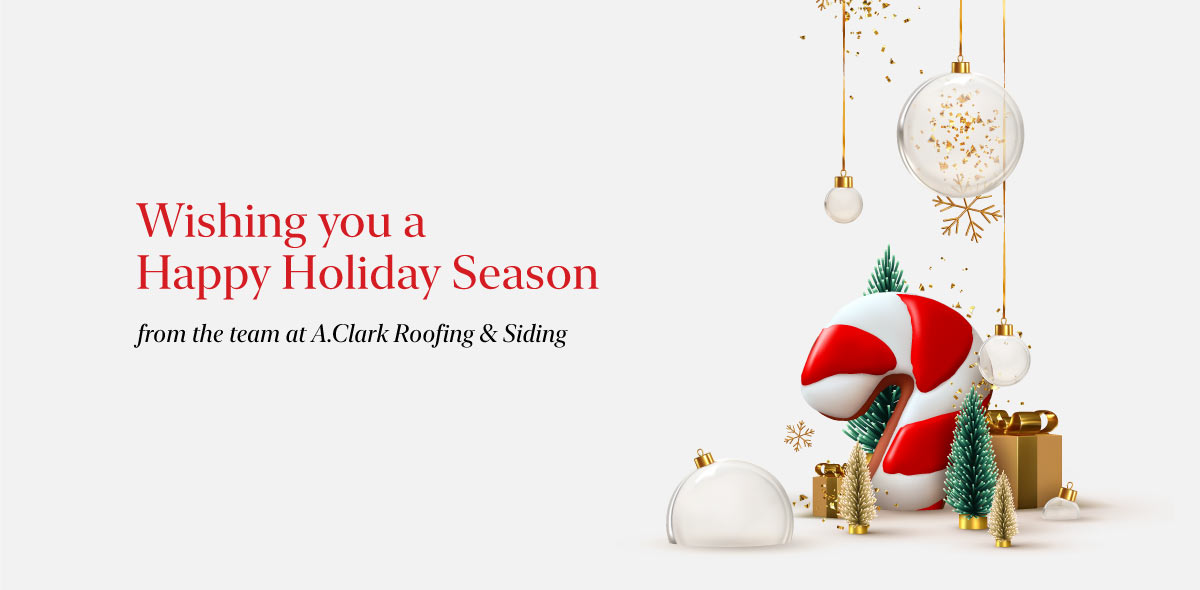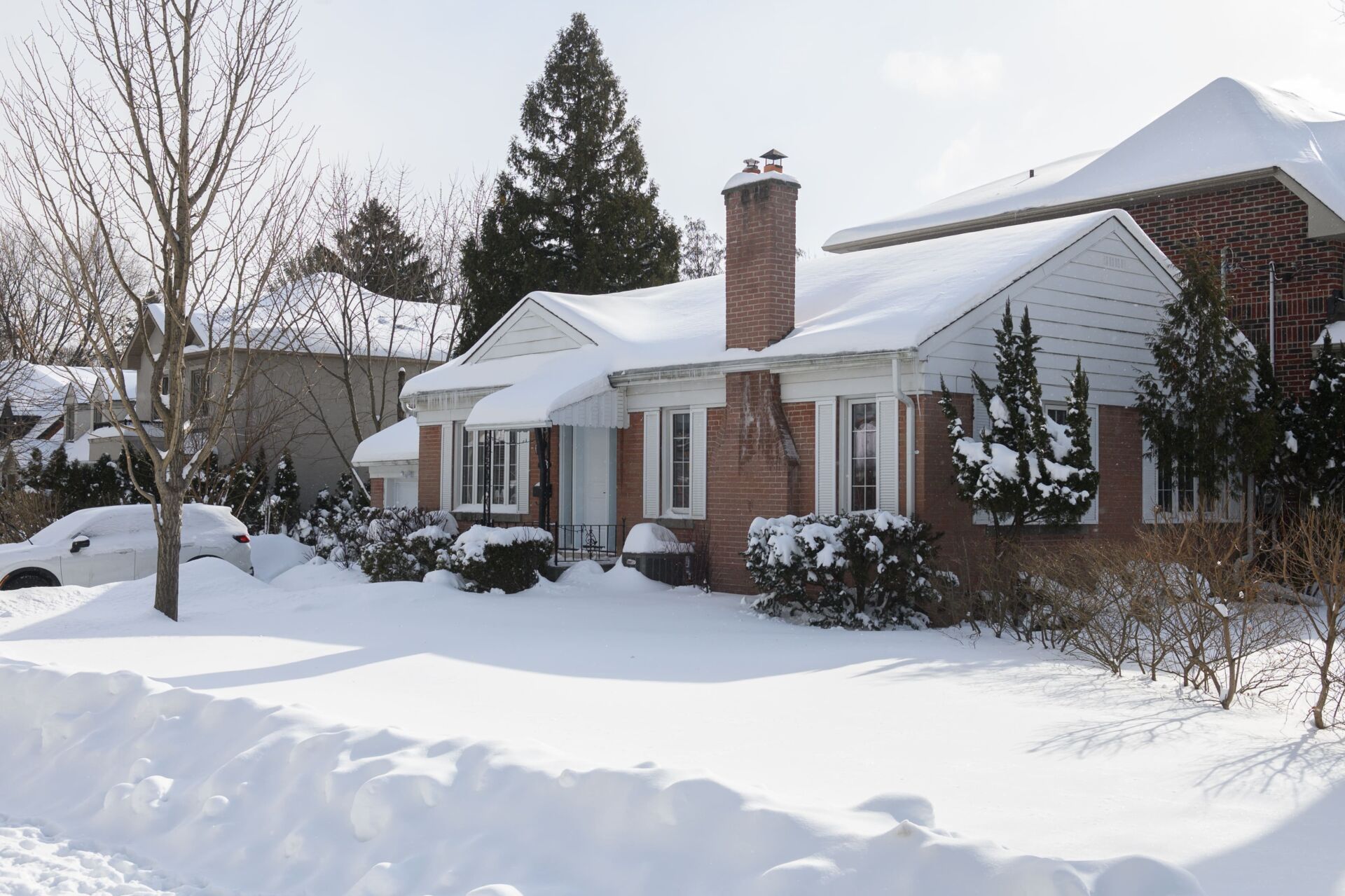Calgary is a city of 5 seasons – spring, summer, fall, winter and, of course, construction. Our city is not unfamiliar with extreme weather events. From heavy rain to scorching summer heat and polar freezes, there is no shortage of weather scenarios in Calgary that can affect your roof.
Your roof bears the full brunt of every season, so if you are considering a new roof installation in Calgary, there are some essential factors to consider before moving forward.
How Calgary’s Climate Can Affect Your Roof Installation
There are many factors to consider when debating a new roof installation. One of the most important factors to consider when installing a roof is the environment in which you live. Calgary’s climate goes throughs through the entire four seasons. What this means for roof installation is that your roof needs to have roofing materials that are capable of withstanding intense weather conditions.
Some weather conditions to consider when choosing roofing materials include:
- Extreme Heat
- High Winds
- Hail
- Winter Storms
- Heavy Rain and Flooding
Which Weather Conditions Affect Roofs The Most in Calgary?
Since Calgary’s weather has many fluctuations, the most prevalent issue for roofs is thermal shock. Thermal shock is caused by severe changes in temperature, which occurs when there are big fluctuations in temperature within a day. For example, if it is incredibly hot most of the day and then bitterly cold at night, this is considered a thermal shock. The expansion and contracting of the roof due to thermal shock can affect the structural integrity and cause faster deterioration.
In addition to thermal shock, there is additional stress on roofs from winter. One of the most common forms of winter damage is ice dams. Ice dams are blockgaes that will form on the edge of your roof or in your gutters that will prevent melting snow from draining correctly. This leads to roof and gutter system issues and leaks.
Other weather conditions that can cause roofing issues and damage are hailstorms and strong winds. These kinds of storms can impact your roof, especially if you have shingles. It can cause them to become loose, break, or fall off completely. All of these climate conditions make it even more imperative to ensure you choose quality roofing materials to protect your home and roof.
Protecting Your Roof From Extreme Heat and Cold
When protecting your roof from these extreme elements, there are a few ways to prevent costly damage. Many homeowners neglect the fact that their roof is a part of a system. When you replace your roof, it’s best to ensure that all aspects of the roofing system are in top-notch shape. This includes proper flashing, soffits, drip edges, vents, downspouts and gutters.
The best way to protect your roof from extreme temperatures is to have it routinely inspected and conduct appropriate maintenance as needed by a professional roofing company. A professional roofer can identify issues and repair them before significant damage is done.
Tips for protecting your roof from Calgary’s weather:
- Conduct regular maintenance: Make a regular maintenance routine. Clean off debris during summer months, repair damaged shingles and flashing when necessary
- Inspect your roof twice yearly: It’s recommended that you inspect your roof twice yearly, but if there is a severe weather event (like a hailstorm or strong winds), you should inspect immediately
- Keep your gutters clean: Gutter control moisture and make sure water drains properly. It’s important to keep them unblocked. Blocked gutters can cause roof deck rotting, water damage, or mould/algae build-up
- Regularly inspect the attic and ceiling: One of the easiest ways to identify a roof leak is by checking the attic and ceiling. Any sign of moisture or water penetration should be addressed by a professional roofer as soon as possible
Best Roofing Materials And Types of Roofs For Alberta’s Climate
There are plenty of options regarding which material to use on your roof. Some homeowners prefer the classic asphalt shingles, while others opt for a metal roof. Although there are benefits to both kinds of roofing, whether you indulge in the asphalt shingles versus metal roof debate, the type of material you choose will significantly influence the lifespan of your roof.
Check out the table below to help understand which materials are best for Alberta’s climate.
| Roofing Material | Description |
| Asphalt shingles | Asphalt shingles are one of the popular and inexpensive roofing options. Protection from moderate wind conditions and hail storms Flexible and low risk of damage with impactSevere storms can damage asphalt shingles High level of fire resistanceLife expectancy of up to 20 years |
| Laminated Architectural Asphalt Shingles | Standard laminated asphalt shingles have a heavier base and multiple layers of refined asphalt. Have more strength than a regular shingleCan withstand stronger winds and hailstormsEasier to install than asphalt shinglesLife expectancy of 30 years or more Class 4 (impact-resistant) laminated shingles have all the features of standard laminated shingles with the following improvements Improved impact resistanceMore resistant to tears and splitsIncreased resistance to water damage as well |
| Rubber Roofs | Rubber roofs are one of the most climate-resilient roofing types. High impact-resistance Has energy absorbing and dispersing featuresCapable of handling hail, heavy rain, heavy snow and extreme temperaturesLess likely to split, peel, crack or rotCan be treated with a fire retardant to increase fire resistanceEco-friendly roofing optionLow maintenance (when installed correctly)Life expectancy is 30 to 50 years |
| Metal Roofs (aluminum and steel) | Metal roofing is a great option for your roof installation since it can last up to four times longer than asphalt singles. Durable, fire-resistant, lightweight roofing Can withstand high winds and winter storms Steel roofs can resist hail better than their aluminum counterpart Extremely resistant to snow and ice formationPrevents water from penetrating your home (when installed correctly)Effectively reflects heat from the sun Eco-friendly roofing optionLife expectancy is 50 to 100 years |
| Concrete Tiles | Concrete tiles are a heavier roofing material requiring reinforced support but have many great qualities. Superb thermal property when compared to other tile types Reduces the amount of heat from sun exposure without the need for additional insulationReduces thermal load by 45% when compared to asphalt shingles Has a Class A fire rating making them ideal for homes in wildfire-prone areasResistant to hail and high windsOffers some water resistance, but concrete does absorb waterMay require roof framing to support their additional weight Life expectancy is up to 50 years with proper maintenance |
| Slate Shingles | Slate or natural stone shingles, similar to concrete shingles, may require additional structural support but offer fantastic protection for your home. Extremely long-lasting Substantial protection against hail, wildfires, and severe wind stormsWorks well on sloped roofsSheds snow and ice The dense nature of slate helps regulate the home’s temperature Protection from extreme heat Reduces energy consumption, which will save you money on your energy billsLife expectancy is from 70 to 200 years |
When selecting a roofing material, it can feel overwhelming. This is why picking a quality roofing contractor matters. Any reputable, professional roofing contractor will help you select the best material, style, and kind of roof while considering all external factors. They should also be able to help inform and educate you on common questions like how often you need to replace your roof, maintenance and inspection routines, and any other inquiries you may have.
Which Season And Climate Is The Best to Install A Roof In?
Depending on which season to install your new roof, the season you select plays a major part. Generally speaking, the majority of roofing materials and asphalt shingles should be installed in the warmer months. You can install shingles in the colder months, but there needs to be extra consideration when doing so.
When installed in winter months, shingles have a higher chance of not adhering properly and might be more vulnerable to damage from climate changes. This can include blowing off the roof from nippy winter winds. Additionally, a professional roofing contractor needs to do cold-weather installations since many manufacturers’ specifications need to be followed properly. Different manufacturers have specific minimum temperatures for their products. If installed incorrectly, the product will not seal properly.
High-Quality Roof Installations in Calgary, Alberta
Embarking on the decision to install a new roof is a massive undertaking. It requires research, diligence, and time. One of the most consuming parts isn’t researching and selecting materials but finding a credible, reputable roofing contractor you can trust. Here at A. Clark Roofing and Siding, we have over 70 years of experience installing roofs, completing roof repairs, conducting roof inspections, and much more.
We are fully licensed and insured, carry full WCB coverage for all our technicians, and offer a 5-year workmanship warranty on various roofing systems designed for Alberta winters, from metal roofs to slate shingles.
If you have any questions regarding roof installation or our services, call us today at 587-806-4593 or get a free contactless quote.
